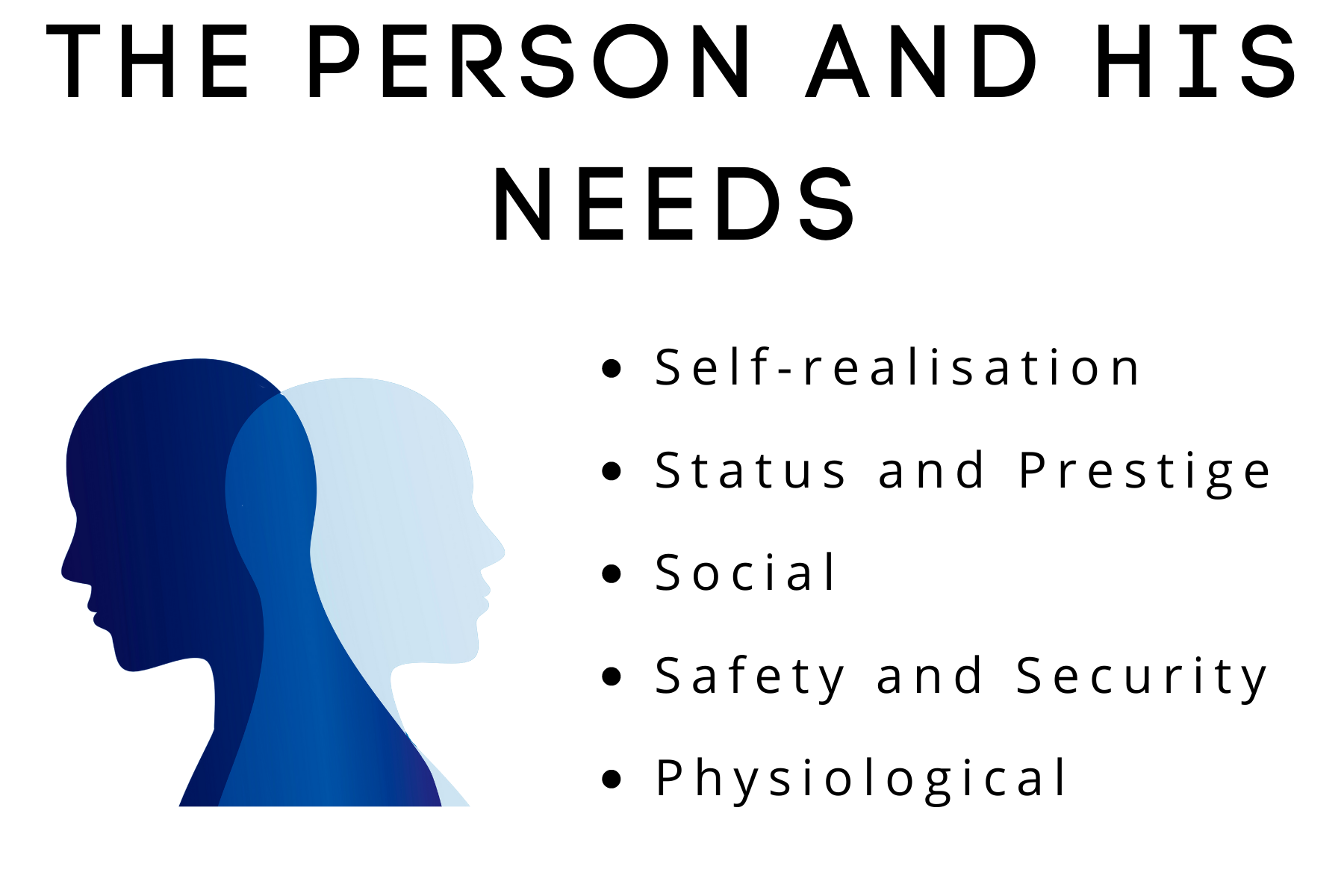
The manager must be aware of the fact that each person has certain needs that he tries to gratify – his whole being is focused on this. Certain needs are gratified in one’s work context and the manager must help his employees in this connection. Human needs (according to Maslow) are the following:
Self-Realisation: Each person fears failure. The average person therefore strives to develop his full potential, experience achievement in his work and make progress towards specific personal objectives. Most people would like to say: “I have achieved something.” Self-realisation doesn’t necessarily have to be experienced in the work context. It can also be experienced in other fields, for instance in a person’s sporting, religious, recreational and domestic activities.
Status and Prestige: The average person strives to feel important, gain the esteem and respect of others and to generally enjoy definite status and prestige in the eyes of his colleagues. A change in job title, for instance, gives a person status value and is of more worth to him than a salary increase.
Social: Everybody fears rejection and has a natural desire to belong to a group. He would like to have friends and maintain healthy family relations. He wants to be accepted by others and experience the feeling of being needed by others.
Safety and Security: Everyone fears the uncertain or the unknown. He wants to experience a feeling of security – at home and also in his work. As he would protect himself against danger at home, he will also protect himself against danger at work. He doesn’t want to lose his job and strives to ensure stability in his career.
Physiological: Every person has the following basic needs that have to be gratified, namely: hunger, thirst, air and accommodation. A manager will hardly be able to motivate an employee who doesn’t have accommodation and who is hungry.

One way in which we can gratify the above-mentioned needs is by working. We are therefore willing to work, because it helps us to gratify our needs. The more needs one gratifies in one’s work situation, the greater is one’s motivation to work and the more is willing to do.
It is consequently possible to determine which aspects make people willing to work hard. It is however important to remember that people’s needs differ and that aspects motivating one person might not be important to another person. The manager must therefore attempt to understand everyone’s needs and to treat the workers accordingly.